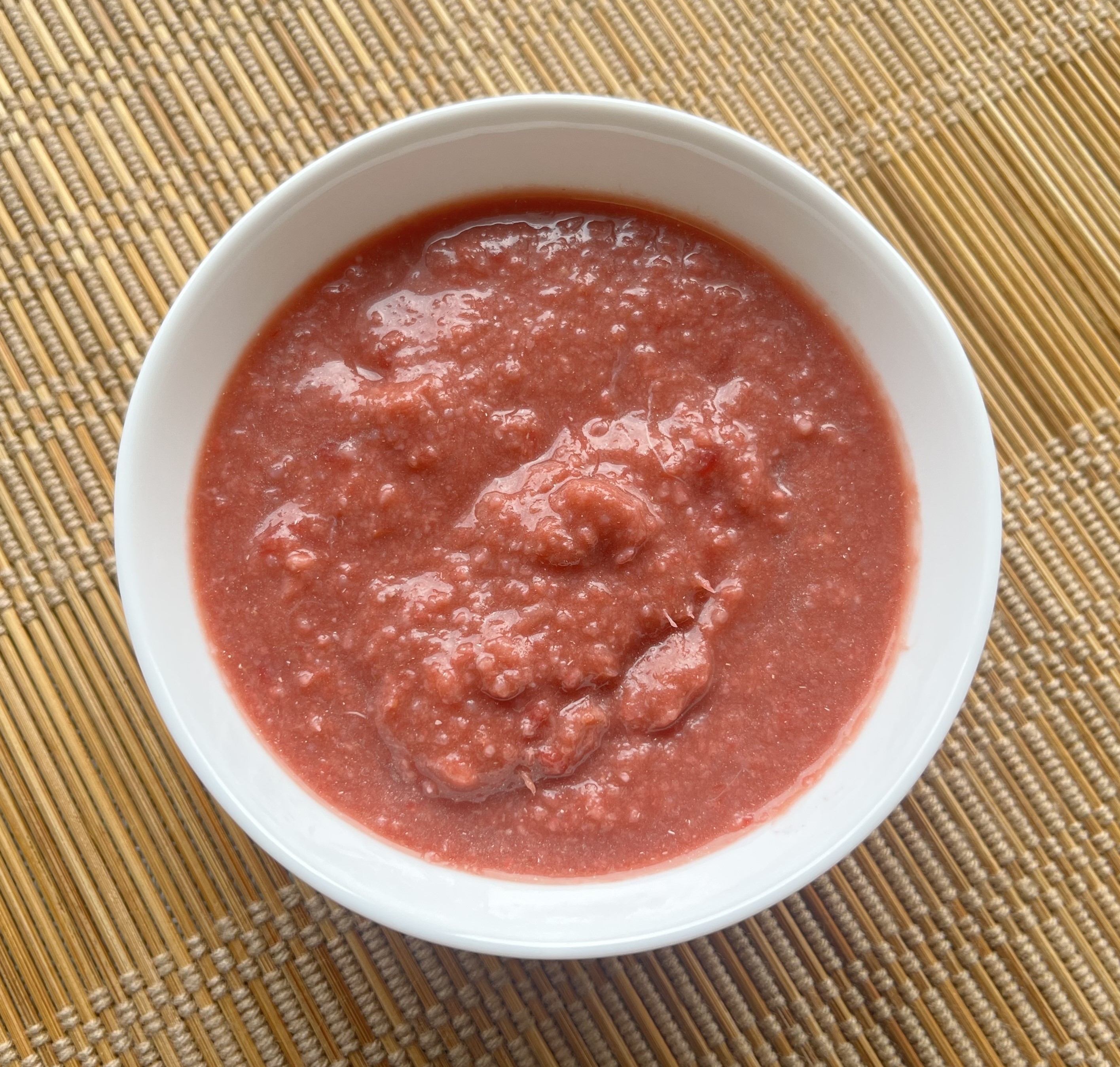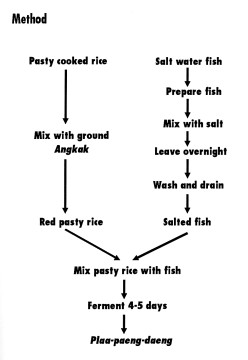Plaa-paeng-daeng
- Name (Thai)
- ปลาแป้งแดง
- Name (English)
- Red fermented fish
- Local name
- Plaa-paeng-daeng
- Fish normally used
-
Anodontostoma chacunda (Kok)
Nemotolosa nasus (Ta-kok)
Nemotolosa nasus (Ta-pian-nam-khem)
Sphyraena sp. (Saak)
Trichiurus haumela (Daab-ngern)
- Product
- Fishery
- Ingredients
- Various kinds of sea water fish. Salt, red mould rice (Angkak), cooked rice.
- Fermentation
- 4-5 days.
- Storage life
- 6-12 months.
- Microorganisms
-
Bacillus subtilis
Reference The traditional fermented foods of Thailand ISBN 9679932249 Year 1995 Pediococcus halophilusReference The traditional fermented foods of Thailand ISBN 9679932249 Year 1995 Staphylococcus epidermidisReference The traditional fermented foods of Thailand ISBN 9679932249 Year 1995 Pediococcus sp.Reference The traditional fermented foods of Thailand ISBN 9679932249 Year 1995 Saccharomyces cerevisiaeReference The traditional fermented foods of Thailand ISBN 9679932249 Year 1995 Bacillus polymyxaReference The traditional fermented foods of Thailand ISBN 9679932249 Year 1995 Vibrio fischeriReference The traditional fermented foods of Thailand ISBN 9679932249 Year 1995 - Properties
- Semi-solid, whole fish or pieces of fish, light pink to dark red colour, sour and salty taste.
- Method
- The fish is cleaned, gutted, descaled, the head cut off and cut into pieces. Small fish is just scaled and gutted. The fish is mixed with salt in the ratio of 3:1 (w/w) and left overnight. In the morning the fish is washed 2-3 times to clean off the salt, the water pressed out, and left to drain. Rice is boiled with an excess of water until soft and pasty, then left to cool. Angkak (red mould rice), which has been pounded to break up the particles, is then mixed with the pasty rice to give and even colour, using about 10 grams per litter of rice. A little sugar can be added, presumably to help the fermentation. The fish is added to the rice mixture in the ratio of about 1 kg of salted fish to 1 litter of rice mixture and packed in a clean jar which is then closed. For the whole fish, a portion of rice mixture is filled in the fish's body cavity. The fish is then left to ferment for 4-5 days.
- Production
- Home industry in the South.
- Consumption
- 1. Plaa-paeng-daeng is usually eaten as a condiment by cooking with coconut milk, shallots and chilli pepper and serving with fresh vegetables. 2. Make a spicy soup like Gaeng-tai-plaa of the south. 3. Steam with beaten egg and coconut milk, garnish with sliced shallots and chilli and eat as a main dish. 4. Mix chopped shallots, bird chilli and lemongrass together and spread over the Plaa-paeng-daeng. Wrap the mixture in banana leaves and bake over a fire. This is also consumed as a main dish.


